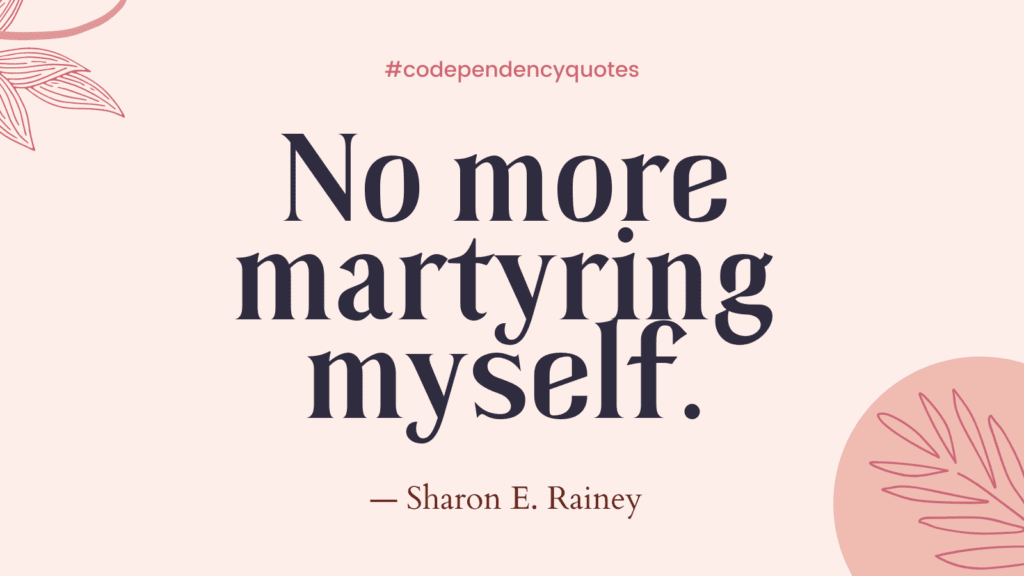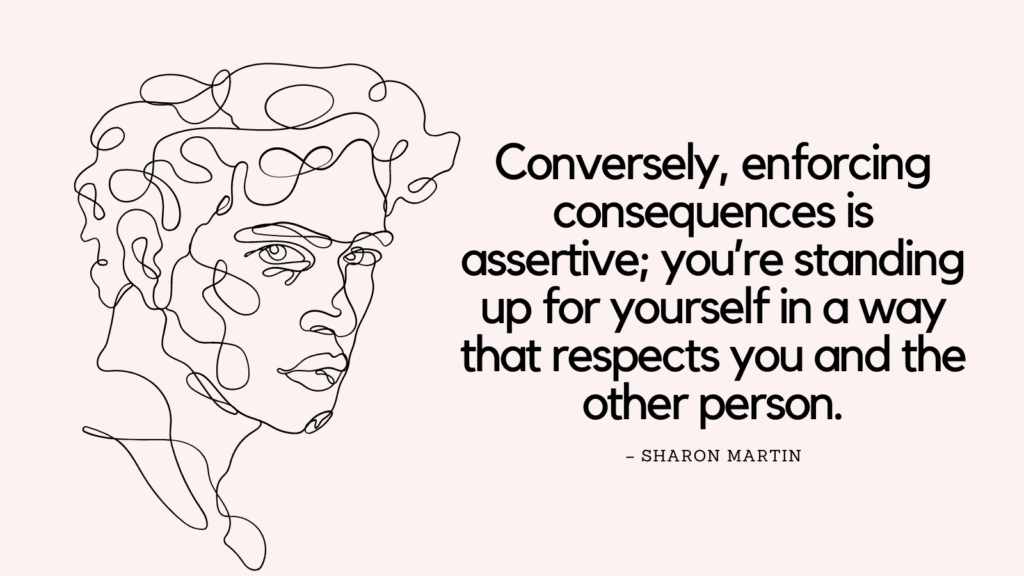This post contains some of the best Brené Brown Perfectionism Quotes.
What Is Perfectionism?
Perfectionism is a personality trait characterized by a strong desire to achieve flawless performance or outcomes, accompanied by high standards and overly critical self-evaluation.
It involves setting excessively high expectations for oneself and often feeling a strong need to meet those expectations at all times.
Perfectionists tend to focus on mistakes and flaws rather than accomplishments and may experience significant distress when they perceive themselves or their work as falling short of their own impossibly high standards.
Perfectionism can manifest in various areas of life, such as work, relationships, and personal achievements.
It often drives individuals to strive relentlessly for perfection, even when it is not realistic or necessary.
This can lead to feelings of chronic dissatisfaction, stress, and anxiety.
Perfectionists may also have difficulties delegating tasks, seeking assistance, or accepting anything less than perfect results.
It’s important to note that while striving for excellence can be positive and motivating, perfectionism becomes problematic when it starts interfering with one’s mental health, well-being, and overall functioning.
It can contribute to a cycle of self-criticism, self-doubt, and fear of failure, creating immense pressure and reducing enjoyment in the process.
Addressing perfectionism often involves developing more realistic expectations, challenging negative self-evaluations, and cultivating self-compassion.
Cognitive-behavioral therapy (CBT) and mindfulness techniques are commonly used therapeutic approaches to help individuals reframe their thoughts, manage anxiety, and find a healthier balance between striving for excellence and accepting imperfections.
Brené Brown Perfectionism Quotes
1. “What does it take to live and love from a place of worthiness? How do we embrace imperfection? How do we cultivate what we need and let go of the things that are holding us back? The answers to all of these questions are courage, compassion, and connection—the tools we need to work our way through our journey. If you’re thinking, Great. I just need to be a superhero to fight perfectionism, I understand. Courage, compassion, and connection seem like big, lofty ideals. But in reality, they are daily practices that, when exercised enough, become these incredible gifts in our lives. And the good news is that our vulnerabilities are what force us to call upon these amazing tools. Because we’re human and so beautifully imperfect, we get to practice using our tools on a daily basis. In this way, courage, compassion, and connection become gifts—the gifts of imperfection.” – Brené Brown
2. “Given how difficult it is to cultivate self-acceptance in our perfectionist society and how our need for belonging is hardwired, it’s no wonder that we spend our lives trying to fit in and gain approval. It’s so much easier to say, “I’ll be whoever or whatever you need me to be, as long as I feel like I’m part of this.” From gangs to gossiping, we’ll do what it takes to fit in if we believe it will meet our need for belonging. But it doesn’t. We can only belong when we offer our most authentic selves and when we’re embraced for who we are.” – Brené Brown
Related: Best 20 Tips On How To Let Go Of Perfectionism
3. “ The stories of our struggles are difficult for everyone to own, and if we’ve worked hard to make sure everything looks “just right” on the outside, the stakes are high when it comes to truth-telling. This is why shame loves perfectionists—it’s so easy to keep us quiet. In addition to the fear of disappointing people or pushing them away with our stories, we’re also afraid that if we tell our stories, the weight of a single experience will collapse upon us. There is a real fear that we can be buried or defined by an experience that, in reality, is only a sliver of who we are.” – Brené Brown
4. “Where perfectionism exists, shame is always lurking. In fact, shame is the birthplace of perfectionism.” – Brené Brown
5. “We don’t claim shame. You can’t believe how many times I’ve heard that! I know shame is a daunting word. The problem is that when we don’t claim shame, it claims us. And one of the ways it sneaks into our lives is through perfectionism.” – Brené Brown
6. “Perfectionism is not the same thing as striving to be your best. Perfectionism is not about healthy achievement and growth. Perfectionism is the belief that if we live perfect, look perfect, and act perfect, we can minimize or avoid the pain of blame, judgment, and shame. It’s a shield. Perfectionism is a twenty-ton shield that we lug around thinking it will protect us when, in fact, it’s the thing that’s really preventing us from taking flight.” – Brené Brown
7. “Perfectionism is not self-improvement. Perfectionism is, at its core, about trying to earn approval and acceptance. Most perfectionists were raised being praised for achievement and performance (grades, manners, rule-following, people-pleasing, appearance, sports). Somewhere along the way, we adopt this dangerous and debilitating belief system: I am what I accomplish and how well I accomplish it. Please. Perform. Perfect. Healthy striving is self-focused—How can I improve? Perfectionism is other-focused—What will they think?” – Brené Brown
Related: How To Break The Cycle Of Performance Anxiety?

8. “Understanding the difference between healthy striving and perfectionism is critical to laying down the shield and picking up your life. Research shows that perfectionism hampers success. In fact, it’s often the path to depression, anxiety, addiction, and life-paralysis.” – Brené Brown
9. “Life-paralysis refers to all of the opportunities we miss because we’re too afraid to put anything out in the world that could be imperfect. It’s also all of the dreams that we don’t follow because of our deep fear of failing, making mistakes, and disappointing others. It’s terrifying to risk when you’re a perfectionist; your self-worth is on the line.” – Brené Brown
10. “Perfectionism is a self-destructive and addictive belief system that fuels this primary thought: If I look perfect, live perfectly, and do everything perfectly, I can avoid or minimize the painful feelings of shame, judgment, and blame.” – Brené Brown
11. “Perfectionism is self-destructive simply because there is no such thing as perfect. Perfection is an unattainable goal. Additionally, perfectionism is more about perception—we want to be perceived as perfect. Again, this is unattainable—there is no way to control perception, regardless of how much time and energy we spend trying.” – Brené Brown
Related: Top 10 Books About Perfectionism
12. “Perfectionism is addictive because when we invariably do experience shame, judgment, and blame, we often believe it’s because we weren’t perfect enough. So rather than questioning the faulty logic of perfectionism, we become even more entrenched in our quest to live, look, and do everything just right.” – Brené Brown
13. “Feeling shamed, judged, and blamed (and the fear of these feelings) are realities of the human experience. Perfectionism actually increases the odds that we’ll experience these painful emotions and often leads to self-blame: It’s my fault. I’m feeling this way because “I’m not good enough.”” – Brené Brown
14. “To overcome perfectionism, we need to be able to acknowledge our vulnerabilities to the universal experiences of shame, judgment, and blame; develop shame resilience; and practice self-compassion. When we become more loving and compassionate with ourselves and we begin to practice shame resilience, we can embrace our imperfections. It is in the process of embracing our imperfections that we find our truest gifts: courage, compassion, and connection.” – Brené Brown
Related: Top 19 Journal Prompts For Perfectionists
15. “Based on my data, I don’t think that some people are perfectionists and others are not. I think perfectionism exists along a continuum. We all have some perfectionistic tendencies. For some, perfectionism may only emerge when they’re feeling particularly vulnerable. For others, perfectionism can be compulsive, chronic, and debilitating, similar to addiction.” – Brené Brown
16. “Perfectionism never happens in a vacuum. It touches everyone around us. We pass it down to our children, we infect our workplace with impossible expectations, and it’s suffocating for our friends and families. Thankfully, compassion also spreads quickly. When we’re kind to ourselves, we create a reservoir of compassion that we can extend to others. Our children learn how to be self-compassionate by watching us, and the people around us feel free to be authentic and connected.” – Brené Brown
17. “In a culture of scarcity and perfectionism, there’s a surprisingly simple reason we want to own, integrate, and share our stories of struggle. We do this because we feel the most alive when we’re connecting with others and being brave with our stories—it’s in our biology. The idea of storytelling has become ubiquitous. It’s a platform for everything from creative movements to marketing strategies. But the idea that we’re “wired for story” is more than a catchy phrase. Neuroeconomist Paul Zak has found that hearing a story—a narrative with a beginning, middle, and end—causes our brains to release cortisol and oxytocin. These chemicals trigger the uniquely human abilities to connect, empathize, and make meaning. Story is literally in our DNA.” – Brené Brown
Related: Am I A Perfectionist Quiz
18. “In a culture of scarcity and perfectionism, asking for help can be shaming if we’re not raised to understand how seeking help is human and foundational to connection. We can encourage our children to ask for help; however, if they don’t see us reaching out for support and modeling that behavior, they will instead attach value to never needing help. We also send strong messages to the people around us, including our children, friends, and employees, when they ask for help, and in return, we treat them differently—as if they are now less reliable, competent, or productive.” – Brené Brown
19. “It’s always helpful to remember that when perfectionism is driving, shame is riding shotgun. Perfectionism is not healthy striving. It is not asking, How can I be my best self? Instead, it’s asking, What will people think? When looking at our own stories, we can benefit from wondering: Did something happen in this story that left me feeling like my cover was blown, revealing that I’m really not what I want people to think I am? Did my pretend/please/perfect/perform/prove house of cards come tumbling down? For those of us who struggle with perfectionism, it’s not difficult to find ourselves in a situation similar to Andrew’s, one where we look back and think, I got sucked into proving I could, rather than stepping back and asking if I should—or if I really even wanted to.” – Brené Brown
Related: Root Cause Of Perfectionism (top 5 Causes)
20. “Shame derives its power from being unspeakable. That’s why it loves perfectionists—we’re so easy to keep quiet. If we cultivate enough awareness about shame to name it and speak to it, we’ve basically cut it off at the knees. Just the way exposure to light was deadly for the Gremlins, language and story bring light to shame and destroy it.” – Brené Brown
21. “It’s awful that the same substances that take the edge off anxiety and pain also dull our sense of observation. We see the pain caused by the misuse of power, so we numb our pain and lose track of our own power. We become terrified of feeling pain, so we engage in behaviors that become a magnet for more pain. We run from anger and grief straight into the arms of fear, perfectionism, and the desperate need for control.” – Brené Brown
Related: Best 60 Perfectionism Quotes To Overcome Perfectionism
22. “In a world where perfectionism, pleasing, and proving are used as armor to protect our egos and our feelings, it takes a lot of courage to show up and be all in when we can’t control the outcome. It also takes discipline and self-awareness to understand what to share and with whom. Vulnerability is not oversharing, it’s sharing with people who have earned the right to hear our stories and our experiences.” – Brené Brown
23. “Perfectionism is not striving to be our best or working toward excellence. Healthy striving is internally driven. Perfectionism is externally driven by a simple but potentially all-consuming question: What will people think?” – Brené Brown
24. “It may seem counterintuitive, but one of the biggest barriers to working toward mastery is perfectionism. In our leadership research, we’ve learned that achieving mastery requires curiosity and viewing mistakes and failures as opportunities for learning. Perfectionism kills curiosity by telling us that we have to know everything or we risk looking “less than.” Perfectionism tells us that our mistakes and failures are personal defects, so we either avoid trying new things or we barely recover every time we inevitably fall short.” – Brené Brown
25. “Perfectionism is not self-improvement. Perfectionism is, at its core, about trying to earn approval and acceptance. Most perfectionists were raised being praised for achievement and performance (good grades, good manners, nice appearance, sports prowess, rule following, people pleasing).” – Brené Brown
Related: Practical-Minded Perfectionist vs. Covert Perfectionist
26. “Perfectionism is a self-destructive and addictive belief system that we use to try to protect ourselves from feelings of shame, judgment, and blame. It is a twenty-ton shield that we lug around thinking it will protect us when in fact it’s the thing that’s really preventing us from taking flight.” – Brené Brown
27. “Perfectionism is self-destructive simply because there is no such thing as perfection. Perfection is an unattainable goal. Additionally, perfectionism is more about perception—we want to be perceived as perfect. Again, this is unattainable—there is no way to control perception, regardless of how much time and energy we spend trying.” – Brené Brown
28. “Perfectionism is addictive, because when we invariably do experience shame, judgment, and blame, we often believe it’s because we weren’t perfect enough. So rather than questioning the faulty logic of perfectionism, we become even more entrenched in our quest to live, look, and do everything just right.” – Brené Brown
29. “Feeling shamed, judged, and blamed (and the fear of these feelings) are realities of the human experience. Perfectionism actually increases the odds that we’ll experience these painful emotions and often leads to self-blame: It’s my fault. I’m feeling this way because I’m not good enough.” – Brené Brown
30. “There’s actually a “perfectionism social disconnection model,” and this research shows that people who are high on the perfectionistic traits scale behave in ways that cause perceived and actual exclusion/rejection by others. In other words, my perfectionism drives me to show up in ways that lead people to push me away.” – Brené Brown
Related: Are You a Procrastinator Quiz? (+ Best 40 Tips To Stop Putting Things Off)
31. “Authenticity is a requirement for connection, and perfectionism (a type of fitting in) is a threat.” – Brené Brown
32. “When we believe that success should be effortless, we simultaneously set ourselves up for shame and diminish the efforts of people who are working on their issues around perfectionism; we become part of our own shame web and other women’s shame webs.” – Brené Brown
33. “One destructive obsession related to perfectionism is the fascination with celebrity culture. We desperately flip through magazines to find out all of the intimate details about the stars we love and the ones we hate. We want to know who has lost weight, how they decorate their houses, what they eat, what they feed their dogs . . . you name it. If they eat it, wear it, own it or lose it—we want to do the same!” – Brené Brown
34. “Perfectionism and fear are keeping people from learning and growing.” – Brené Brown
Related: Top 30 Affirmations For Perfectionism (+FREE Worksheets)
35. “In teams and organizations where heart and emotion, especially vulnerability, are seen as liabilities, the culture or in some cases individual leaders strike a bargain with our grifter egos to lock up the heart and seal off feelings. They reward armor like perfectionism, emotional stoicism, the false compartmentalizing of our lives and our work, keeping things easy and comfortable instead of embracing the necessary tough and awkward conversations, and they value all-knowing over always learning and staying curious.” – Brené Brown
36. “Conversations about perfectionism within trusting and brave teams can be healing and powerful. The goal is to get very clear about where, as a team, we’re the most likely to get swallowed by perfectionism, how it shows up, and how we distinguish perfectionism from healthy striving for excellence. Are there ways that we can check in with one another that work for everyone? Are there flags, warning signs, or indicator lights that we can all take responsibility for spotting? I’ve seen teams that are willing to have these conversations make profound changes, grow closer, increase their performance, and build trust in the process.” – Brené Brown
37. “Shame derives its power from being unspeakable. That’s why it loves perfectionists—it’s so easy to keep us quiet. If we cultivate enough awareness about shame to name it and speak it, we’ve basically cut it off at the knees.” – Brené Brown
38. “Today, some young adults are overprotected while others are grossly underprotected. Some are paralyzed by perfectionism and what other people think, while others have found it physically and emotionally safer to shut down and/or armor up. Either way, it feels like we’re failing young adults, and it’s easy to understand why many of them are entering the workforce without grounded confidence and rumbling skills.” – Brené Brown
Related: Best 20 Must-Read Books On Codependency




